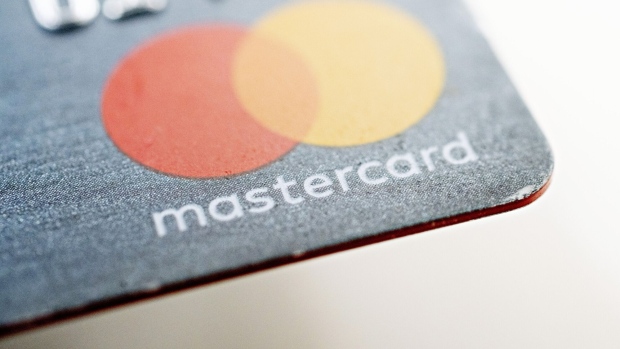Apr 27, 2023
Mastercard Says DOJ Is Probing Debit Card Routing Practices
, Bloomberg News

(Bloomberg) -- Mastercard Inc. said the US Department of Justice is investigating whether the company has acted in an anticompetitive manner in its debit-card business, a signal that the agency has widened a probe that previously centered on rival Visa Inc.
Mastercard said it received a civil investigative demand from the department last month seeking documents regarding a potential violation of certain sections of the Sherman Act, a sweeping law meant to protect competition. The company is cooperating with the probe, which focuses on the firm’s US debit program and competition with other networks and technologies, according to a quarterly regulatory filing.
The move comes nearly two years after the Justice Department began a similar inquiry into Visa’s practices. In January, the agency’s antitrust division issued additional civil investigative demands to Visa seeking more documents and information for the probe, which Visa has said it’s cooperating with.
“It’s not surprising that the DOJ would request information from other players in the debit space,” Mastercard Chief Financial Officer Sachin Mehra said in an interview. “It’s hard to speculate about the potential outcome, but these types of investigations do take a number of years.”
The Justice Department started its investigation into Visa’s debit practices after it sued the company over its planned $5.3 billion purchase of Plaid Inc. At the time, the department argued that the combination would further limit competition in the market for online debit-card transactions. The two companies ultimately abandoned the deal.
The Justice Department’s inquiry hearkens back to a 2010 law known as the Durbin Amendment, which requires banks to include two competing networks on their debit cards.
The idea is that merchants are supposed to be given a choice: they can route transactions over a major network like Visa or Mastercard, or they can use a smaller alternative. Those networks — with names like Pulse, Star and NYCE — can be cheaper for merchants.
But in recent years, merchants have complained that they’ve had issues using alternative networks for online purchases. As a result, the Federal Reserve in October agreed to rewrite its rules governing debit-card transactions, ordering banks to ensure they always have at least two payment networks enabled to process all debit-card transactions, including for digital purchases.
(Updates with CFO comment in fourth paragraph, probe details throughout.)
©2023 Bloomberg L.P.


